Your art degree may be more valuable than you thought. Experts claim that arts jobs are unlikely to be eliminated amid workforce automation.
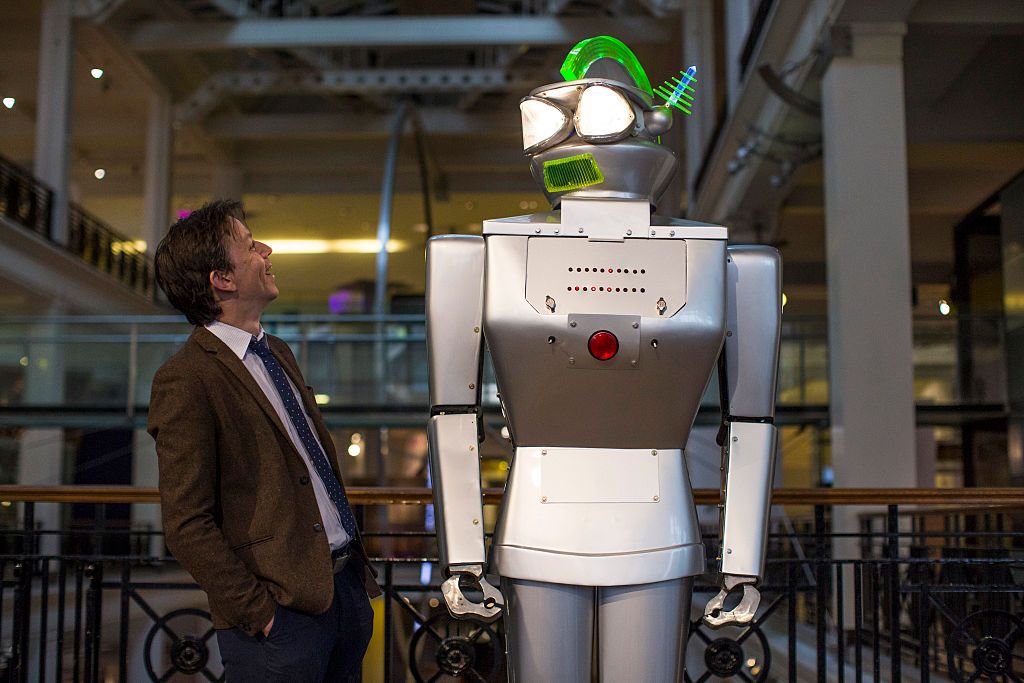



Staff members who die will be put in cold storage until medical science can revive them.
Since congressional Republicans voted in a bill containing the Trump administration’s roll back of the Affordable Care Act, healthcare is once again a topic on everyone’s lips. In the absence of any universal healthcare scheme, employer-provided medical coverage is a crucial benefit for employees, tempting people to stay at jobs they might otherwise have left, or apply for positions they wouldn’t otherwise consider.
In the contest to attract new hires, tech companies often supplement already generous salaries with comprehensive benefit packages, and in this vein one company has hit on a novel idea: A health plan that covers its employees beyond death and into the realms of a speculative future rebirth.
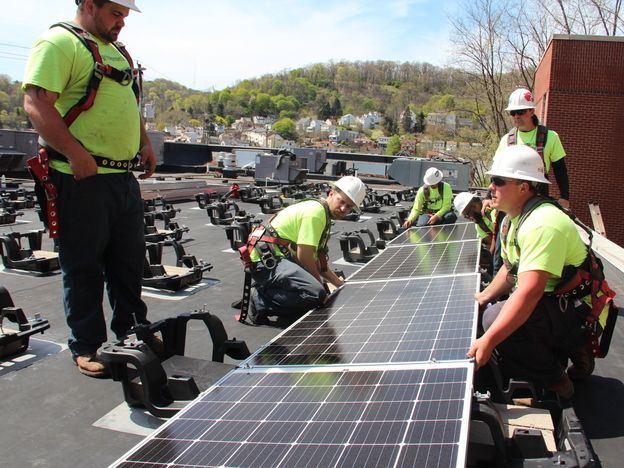
A work crew for the Pittsburgh company Energy Independent Solutions installs solar panels at a community building in Millvale, Pa.
Craig Williams is still mining coal despite tough times for the business. “We’re one of the last industries around and hope to keep it that way,” he says in a breakroom at Consol Energy’s Harvey mine, south of Pittsburgh.
The father of two — speaking in his dusty work jacket and a hard hat with headlamp — says coal is the best way he’s able to support his family. He declines to give his salary, but nationally, coal miners average about $80,000 a year.
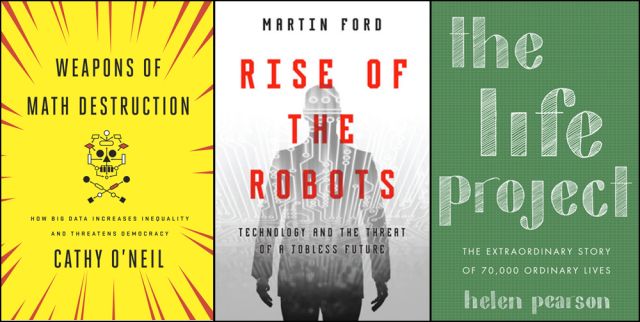
2017 begins on Monday in Vancouver, Canada, and will explore the theme “The Future You.” If the future you is anything like the future us, you are likely curled up in a big cushy chair right now, devouring the contents of a book that flips your thinking. Below, some reading suggestions from the speaker program. Read, enjoy and stay tuned to the TED Blog for beat-by-beat coverage of the conference.
TED2017 begins on Monday in Vancouver, Canada, and will explore the theme “The Future You.” If the future you is anything like the future us, you are likely curled up in a big cushy chair right now, devouring the contents of a book that flips your thinking. Below, some reading suggestions from the speaker program. Read, enjoy and stay tuned to the TED Blog for beat-by-beat coverage of the conference.
Weapons of Math Destruction: How Big Data Increases Inequality and Threatens Democracy by Cathy O’Neil. The decisions that affect our lives are no longer made by humans — they’re made by algorithms. This might sound like a great way around bias and discrimination, but these things are often built right into our mathematical models. When it comes to college admissions, decisions on parole, applications to jobs and the affects of a bad credit score, O’Neil explores the unintended consequences of algorithms. (Read an excerpt.)
The Telomere Effect: A Revolutionary Approach to Living Younger, Healthier, Longer by Elizabeth Blackburn and Elissa Epel. Molecular biologist Elizabeth Blackburn received the Nobel Prize in Medicine for her discovery of telomeres, the ends of chromosomes that — like shoelace tips — keep our genetic information from fraying. Both telomeres and telomerase, an enzyme that restores worn-down telomeres, appear central to the aging process. This book looks at the research — then turns its attention to how our thoughts, bodies and social worlds affect us on the cellular level.
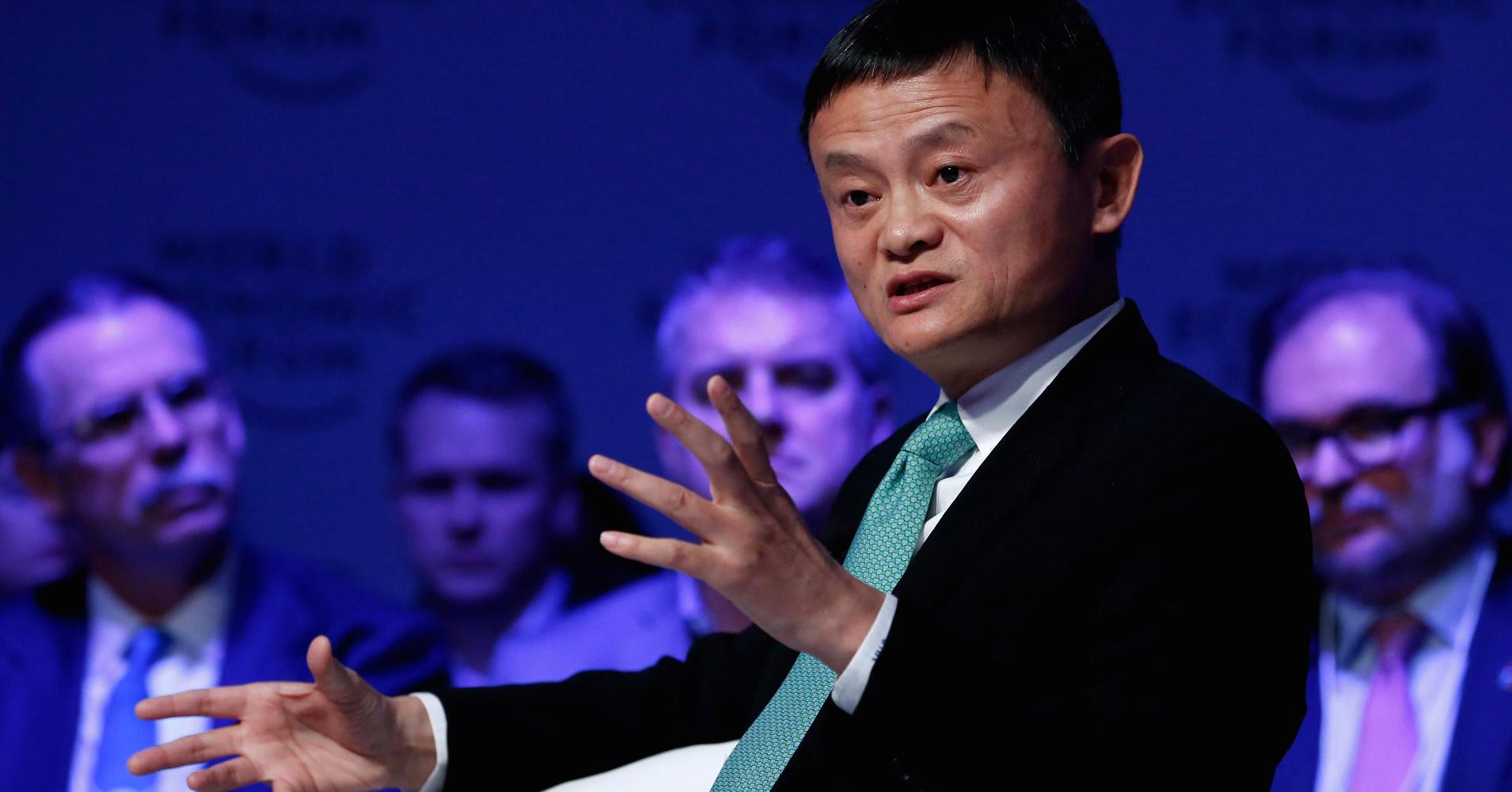
Alibaba Chairman Jack Ma warned on Monday that society could see decades of pain thanks to disruption caused by the internet and new technologies to different areas of the economy.
In a speech at a China Entrepreneur Club event, the billionaire urged governments to bring in education reform and outlined how humans need to work with machines.
“In the coming 30 years, the world’s pain will be much more than happiness, because there are many more problems that we have come across,” Ma said in Chinese, speaking about potential job disruptions caused by technology.

China’s minimum living standard guarantee, named dibao, is receiving fresh interest in the region as countries from Korea to India turn to universal basic income (UBI) to boost their economies and combat the coming automation-induced job crisis.
Asia-Pacific countries are beginning to consider their own form of universal basic income in the face of an automation-induced jobs crisis.
By David Green
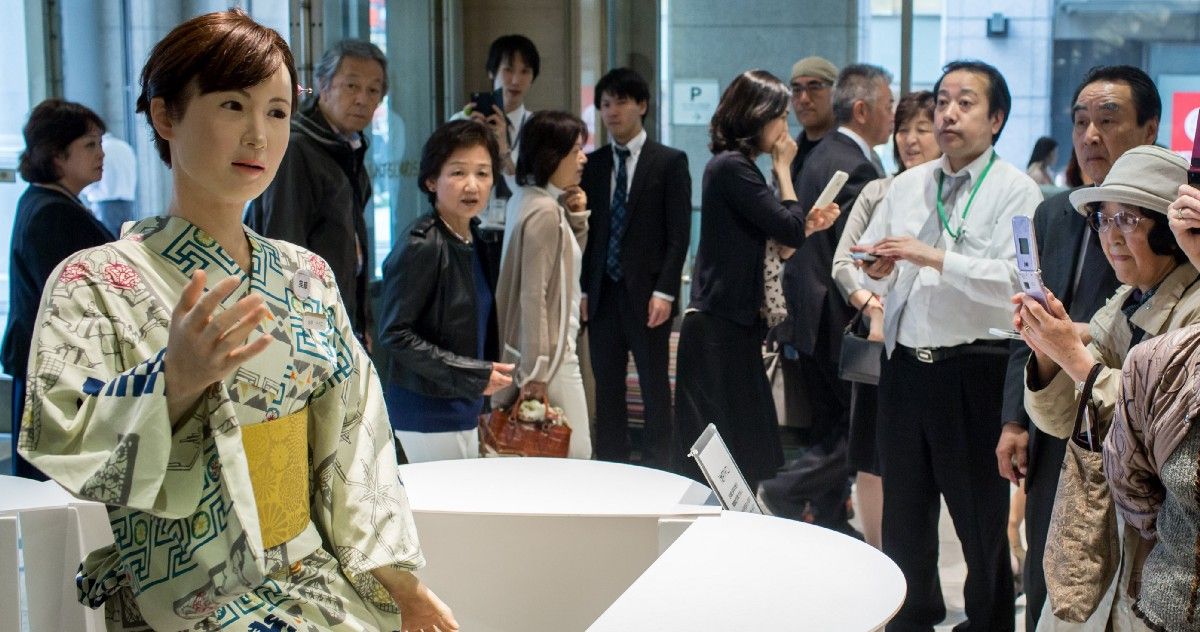
Almost half of our jobs will vanish by 2033 due to robotics and computer automation, according to an Oxford University study. Another study commissioned by the real-estate services company CB Richard Ellis predicts that half the occupations we have now will disappear by 2025.
So who can expect pink slips during the Rise of the Machines?
Predictably, people who work on assembly lines, plantations and construction sites will be replaced by robots that don’t sleep, get sick or take smoke breaks.
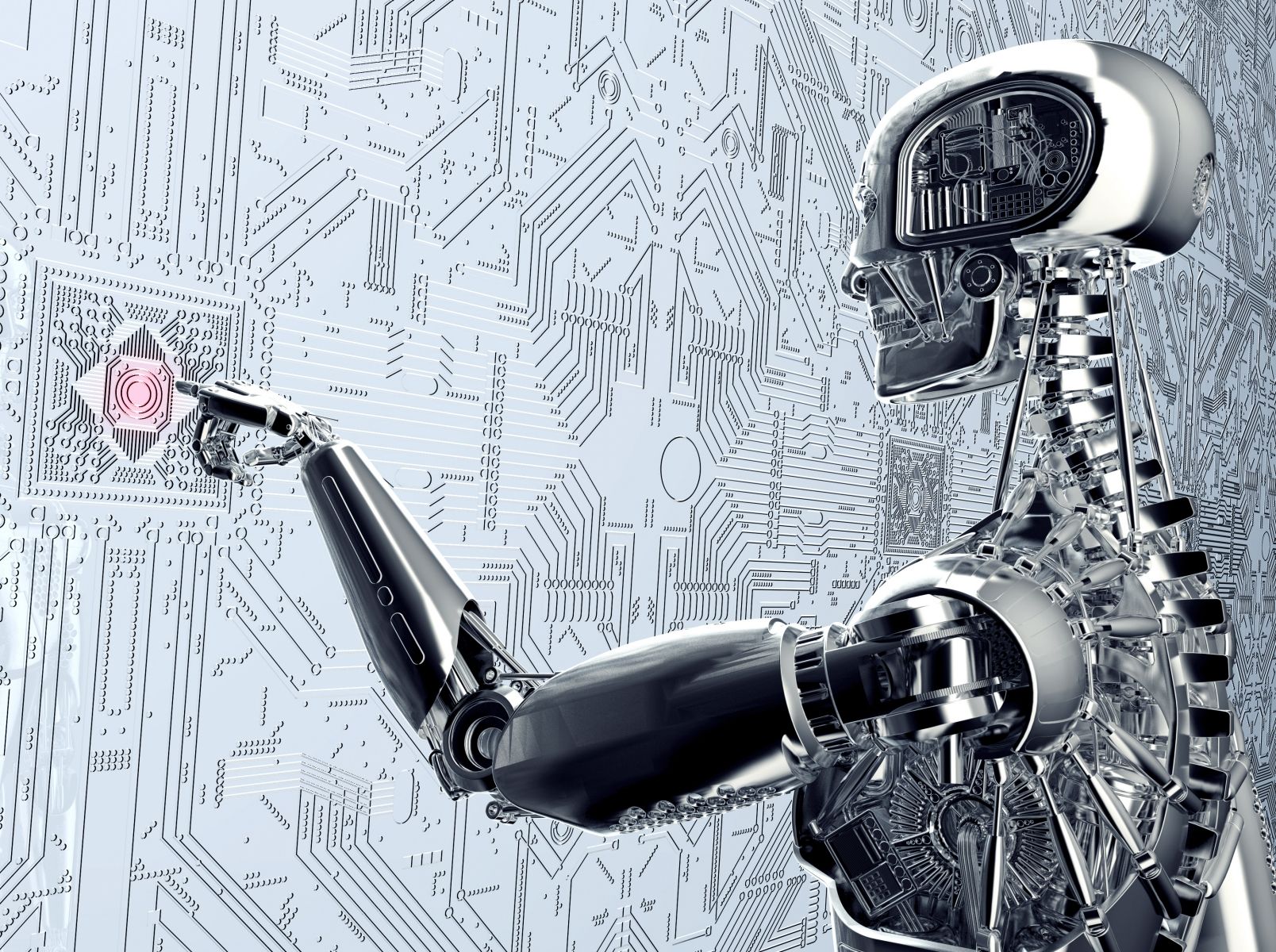
Machine learning algorithms and artificial intelligence systems influence many aspects of people’s lives: news articles, movies to watch, people to spend time with, access to credit, and even the investment of capital. Algorithms have been empowered to make such decisions and take actions for the sake of efficiency and speed. Despite these gains, there are concerns about the rapid automation of jobs (even such jobs as journalism and radiology). A better understanding of attitudes toward and interactions with algorithms is essential precisely because of the aura of objectivity and infallibility cultures tend to ascribe to them. This report illustrates some of the shortcomings of algorithmic decisionmaking, identifies key themes around the problem of algorithmic errors and bias, and examines some approaches for combating these problems. This report highlights the added risks and complexities inherent in the use of algorithmic decisionmaking in public policy. The report ends with a survey of approaches for combating these problems.
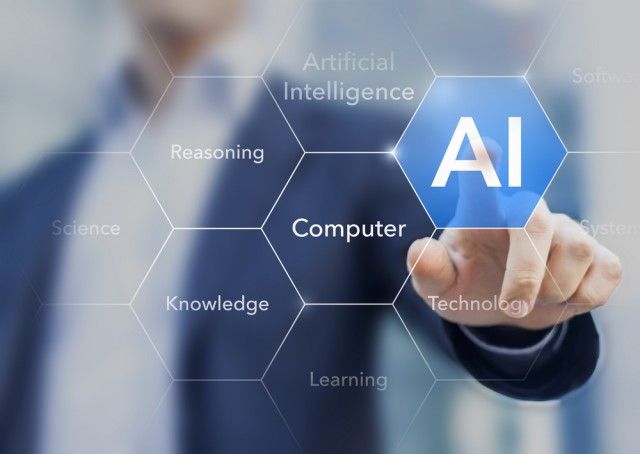
Despite the popular belief that artificial intelligence is coming to take your jobs away, accountants would love some robotic help to get them through the day. This is according to a new report by Sage, which says 96 percent of accountants are confident about the future of accountancy as well as their role in it.
Despite welcoming change, more than two thirds of respondents (68 percent) expect their roles to change through automation, in the future.
Here’s what accountants are expecting from automation: almost four in ten (38 percent) see number-crunching as their number one frustration. Thirty-two percent still use manual methods for this work. A quarter (25 percent) use Excel while seven percent still use handwritten notes.